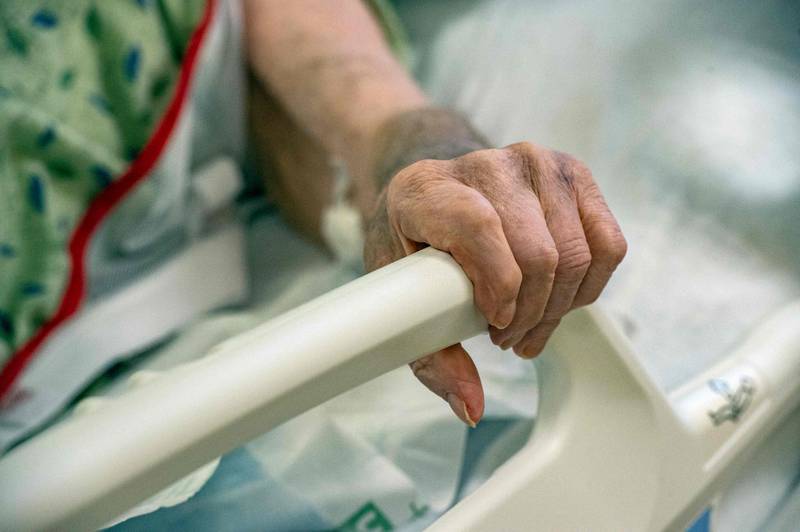People may be overtreated while dying, making death less humane, experts say

People in countries including the UK may be overtreated as they die, making death less humane as the role of health care grows and that of families and communities diminishes, a commission says. A Lancet Commission says an overemphasis on aggressive treatments to prolong life, global inequities in palliative care access, and high end-of-life medical costs have led to millions of people suffering unnecessarily.
The experts say many people, mainly in low and middle-income countries, have no access to palliative care, and particularly to opioids, while those in high-income countries may be overtreated.
“The decision of when to accept death and stop treatment aimed at delaying death is difficult," said Dr Richard Smith, co-chair of the commission. “Unfortunately, it is much easier to go on treating people than it is to have what has been called ‘the difficult conversation’.
“People are thus not aware of the benefits and risks of different options. There is lots of evidence these ‘difficult conversations’ don’t happen or happen too late.”
Over the past 60 years, dying has moved from the family and community setting to become primarily the concern of health systems, experts say.
In the UK, about one in five people require end-of-life care are at home, while about half are in hospital. Global life expectancy has risen steadily from 66.8 years in 2000 to 73.4 years in 2019. But as people are living longer, they are living more of these additional years in poor health. “To die in pain without access to opioids is torture," Dr Smith said.
“Meanwhile, many people in high-income countries are overtreated at the end of life, often with futile treatments that bring no benefit to the dying person, which increases suffering.
“Many people die in acute hospitals, which are usually not good places to die.” The experts say more attention should be paid to the dying, their families and communities, and the social and cultural aspects of death.
“We want to see a rebalancing with a bigger role for families and communities, and health professionals playing an important but supporting rather than leading role," Dr Smith said.
“When the NHS began, death was usually faster, happened at a younger age, and was less likely to occur in an institution, and doctors had much less capacity to delay death. “As the world has changed, much more emphasis has been paid to the medical aspects of death and less to the family, community, cultural and social aspects.
“People have also become much less familiar with death. Deaths occur in institutions, and bodies are whisked away. Coffins are closed. “The unfamiliarity with death has probably made people more scared of death. We would like to see many more stories and conversations about death and dying, and more familiarity with death and dying.
“We would like people to become ‘death literate’, familiar with the process and able to contribute to care. Most care for the dying is not complex.”
The commission, made up of experts from across a range of fields, including health and social care and patient and community activists, analysed how societies around the world perceive death and care for those dying.
“The Covid-19 pandemic has seen many people die the ultimate medicalised death, often alone but for masked staff in hospitals and intensive care units, unable to communicate with their families, except digitally," said Dr Libby Sallnow, palliative medicine consultant and UCL and co-chair of the commission.
“How people die has changed dramatically over the past 60 years, from a family event with occasional medical support, to a medical event with limited family support.” The commission sets out key recommendations for policy makers, health and social care systems, civil society and communities.
Some of these include: education on death, dying, and end of life care; increasing access to pain relief at the end of life must be a global priority; conversations and stories about everyday death, dying and grief; and networks of care must lead support for people dying, caring, and grieving.
The commission also sets out five principles of a new vision for death and dying, including that dying must be understood to be a relational and spiritual process rather than simply a physiological event.
